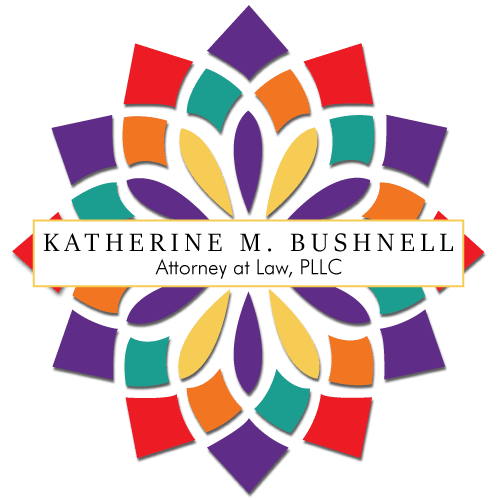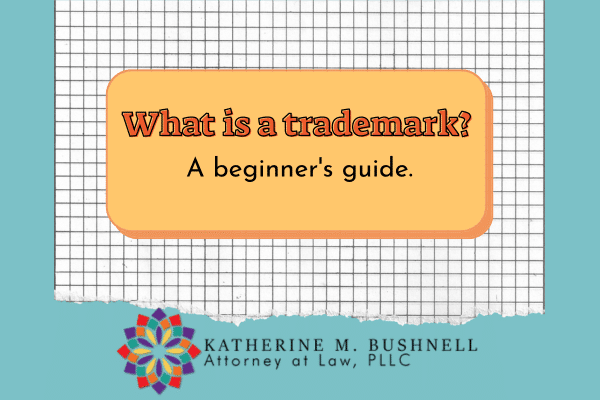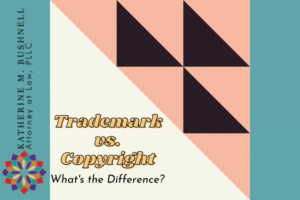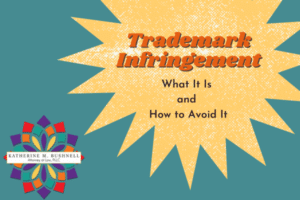A trademark is a powerful tool for any business owner. It is a word, phrase, symbol, design, or a combination of these things that identifies your goods or services and sets them apart from those of your competitors. A trademark allows you to establish a brand identity, build customer loyalty, and protect your business from copycats and imitators.
Whether you are a new business owner or a seasoned entrepreneur, this guide will provide you with the knowledge you need to protect your intellectual property and safeguard your brand.
What is a Trademark?
A trademark is any word, phrase, symbol, design, or a combination of these things that identifies your goods or services and distinguishes them from those of others. It is a valuable asset that can help you establish a unique brand identity and build customer recognition and loyalty. You can register a trademark in your state, nationally, or
Not everything can be trademarked, though. The U.S. Patent and Trademark Office (USPTO) has specific requirements for what can and cannot be registered. Generally, you cannot register something that is too generic, too descriptive, or too similar to an existing trademark.
Trademark vs. Copyright
It is also important to understand the difference between a trademark and a copyright. Both protect intellectual property, but they serve different purposes.
Copyrights primarily protect the rights connected to creative works. These include literary, dramatic, musical, artistic, and certain other original works, like software code.
A trademark is a powerful tool for establishing and protecting your unique brand identity. It can protect the use of a company’s name, its product names, brand identity (like logos), and slogans.
Related Post: Trademark vs. Copyright: What’s the Difference?
Do I Need a Trademark?
Whether you need a trademark or not depends on your business goals and the nature of your products or services. If you have a unique brand name, logo, or slogan that sets you apart from your competitors, you may want to obtain a trademark to protect it.
Here are some reasons why a business might need a trademark:
- Protection from copycats: It gives you the exclusive right to use your brand name, logo, or slogan. It also prevents others from using it without your permission. This can help you avoid confusion among consumers and protect your business from copycats and imitators.
- Brand recognition: It helps establish a unique brand identity and builds customer recognition and loyalty. It also makes it easier for customers to find you online or in stores.
- Legal benefits: A registered trademark provides broader rights and protections than an unregistered one. It gives you the right to use the ® symbol and provides you with legal remedies in case of infringement.
Before obtaining a trademark, consider these factors:
- Cost of registration and maintenance
- Strength of your mark
- Likelihood of confusion with existing trademarks
Consider visiting with with an attorney to ensure that your trademark is registered correctly and fully protected.
Benefits of Registration
Even before it’s registered, you own a trademark by using it in commerce. And the common law can provide some protection. But by registering your mark with the USPTO, you can receive additional benefits and protections.
Here are some benefits of trademark registration:
- Presumption of ownership and validity: Registration creates a legal presumption (assumption) that you own a mark and that the mark is valid. This makes it easier for you to enforce your rights against people who try to use your mark without your permission.
- National protection: Registration through the USPTO provides nationwide protection against others using similar marks for similar products or services.
- Ability to sue for infringement: Registered marks provide the owner with the ability to sue in federal court for trademark infringement. There are a variety of remedies, including injunctions, damages, and attorney’s fees.
- Enhanced ability to license and assign: Registered marks are easier to license or assign because they have a public record of ownership and validity.
- Increased brand value: Trademark registration can enhance your brand’s value by creating an exclusive right to use your mark and distinguishing your products or services from competitors.
Related post: Your Business Needs Well Drafted Contracts
Limitations of Trademarks
There are some limitations with trademarks. While the USPTO registers trademarks, it does not enforce them. It’s your responsibility as the owner to monitor for copycats and take action against them.
Your trademark protects your brand only for the specific classes of goods and services listed on your application. You can expand usage to more categories, but you’ll have to file another application if you did not include those intended categories on your initial application.
Your trademark is not a substitute for other registrations, like registering your business with your state, the IRS, or any other government entity. There are also certain maintenance requirements that you’ll need to meet in order to prevent your trademark from being cancelled.
Finally, remember that registration with the USPTO provides protection for your mark only within the United States. But you can register your mark internationally if that need arises. In some cases, you may also be able to register your mark with your state.
The Symbols – What Do They Mean?
Trademark symbols serve as notice to consumers and competitors that you are claiming ownership of your trademark. Here are the three most commonly used symbols and what they mean:
- ™ – The ™ symbol stands for “trademark.” It is used to show that you claim ownership of a mark that is not registered with the USPTO. This symbol can be used with any mark you consider to be a trademark, whether it is a word, phrase, design, or combination of these.
- ® – The ® symbol stands for “registered trademark.” It can only be used with marks that are registered with the USPTO. This symbol indicates that you have the exclusive right to use the trademark in connection with the products or services listed in your registration.
- ℠ – The ℠ symbol stands for “service mark.” It is used to claim ownership of a trademark that identifies services rather than goods. This symbol can be used in the same way as the ™ symbol, but specifically for service marks.
It’s important to note that the use of these symbols is not required by law, but they can be helpful in providing notice to others of your trademark rights. Additionally, improper use of these symbols could result in loss of your trademark rights or legal liability.
Owning vs. Registering – Is There a Difference?
Many business owners may wonder whether owning a trademark and registering a trademark are the same thing. While both provide some level of protection for your brand, there are some key differences between owning and registering a trademark.
You own a mark just by using it in commerce. By doing so, you establish common law rights to the mark. These common law rights can provide some protection against others using a similar mark. But common law rights are limited and may be difficult to enforce.
But as mentioned earlier, registering a trademark with the USPTO provides additional benefits and protections. Some of the benefits of registration include nationwide protection, the ability to sue for infringement in federal court, and enhanced brand value.
It’s important to note that while registration provides greater protection, it also requires time, effort, and money. The registration process can take several months or longer, and fees can range from a few hundred to several thousand dollars depending on the number of classes and other factors.
Your Next Steps
Trademarks are an essential tool for protecting your brand. They establish exclusive rights to your company name, product names, logos, and slogans. Understanding the basics of trademark law can help you avoid costly legal battles and ensure that your brand is protected.
If you’re unsure whether you need a trademark or have questions about the registration process, schedule a meeting with us. We can help you develop a strategy tor protect your brand and navigate the often complex world of trademark law.




